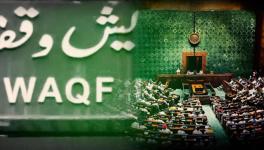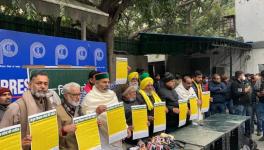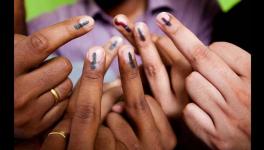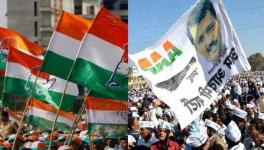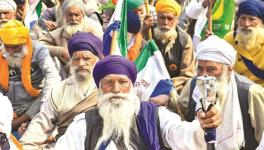Shiromani Akali Dal: Is it Curtains Down on a Once Glorious Past ?
The grand old party of the Punjabis in general and the Sikhs in particular i.e. Shiromani Akali Dal (SAD,) is passing through a serious crisis of its political survival in contemporary times. Many keen observers of politics in Punjab are of the view that though the party had witnessed many turbulent periods since its inception in 1920 but the present day crisis is unprecedented.
There is a serious challenge to the existing leadership of the party (mainly the Badal family) which many think is not in a strong position to manage this crisis at the moment. The organisational structure of SAD has weakened and the legitimacy of its leadership is at stake. This development raises serious questions on the capability of top party leaders.
This process began with SAD’s poor performance in the 2017 Punjab Assembly and the 2019 Lok Sabha elections, Assembly bye-elections along with elections to urban and semi-urban civic bodies, samiti and zila parishad, even though it had an alliance with the Bharatiya Janata Party (BJP).
The dismal performance of SAD exposed the poor management skills of its top leaders. In recent years, the party’s problems got aggravated because of its support to three Central farm laws in Parliament.
First, SAD advocated and supported the legislation being a part of the BJP-led National Democratic Alliance at the Centre. Later, its lone representative in the Narendra Modi government, Harsimrat Kaur Badal, had to resign and the party withdrew support to NDA following pressure from the farmers’ protest movement.
It may be recalled that Akali Dal was one of the oldest allies of Jan Sangh and later on BJP. But now, things have come to such a passé that SAD leaders, like leaders of other traditional parties, avoid visiting rural and semi-urban areas to mobilise support in the coming Assembly elections fearing the wrath of farmers and others.
SAD suffered a serious setback when a number of its prominent leaders like Sukhdev Singh Dhindsa , Manjinder Singh Sirsa, Sewa Singh Sekhwan, Ranjit Singh Brahmpura and others left the party either to form their own party or join other parties. The continuous exodus of leaders has mounted the problems of the top leadership.
The genesis of the present crisis in SAD can be traced back to 2007 when Sukhbir Singh Badal, the party president, was handed over party leadership by his father Parkash Singh Badal, ignoring many senior and taksali (time-tested) leaders of the party. This development annoyed many party veterans like Ranjit Singh Brahmpura, Rattan Singh Ajnala(former members of Lok Sabha), Manpreet Singh Badal ,estranged cousin of Sukhbir Badal and then finance minister in the Badal government and Sukhdev Singh Dhindsa, MP, Rajya Sabha.
The departure of these leaders was followed by resignations of a number of middle-rung leaders in the party. Most of these leaders have recently joined BJP. Though some of the old guards cited health and old age as reasons for withdrawing from active political life, but the reality was something else. Most of them did not find any future in SAD in the coming days as the party was badly rejected by people in the 2017 Assembly elections and other elections after that. It could win only 15 seats and was replaced by the Aam Aadmi Party (AAP) as the key Opposition party in the house.
The continuous decline of SAD and its structure has been thoroughly exposed at all levels. It is also unprecedented in 100 years of the party’s history that a son was handed over the party reins from his father.
Through the years, the Badal family has strengthened its hold over the party and government by large-scale induction of new people who pledge complete loyalty to the top leadership. This was done to keep the taksali leadership at bay. The leadership of the young brigade was handed over to Bikramjit Singh Majithia, the brother-in- law of Sukhbir Singh Badal, who himself became active during the 2007 elections.
This process resulted in the total marginalisation of the senior leaders and saner cadre in the party, who were replaced by persons with doubtful credentials. The victory of SAD in the 2012 Assembly elections postponed the leadership crisis, as the new leadership was credited with management skills both in winning those elections and managing the party. That victory lead to the Badals’ complete control over government machinery and the party which ultimately led to centralisation of power in a few hands, and decentralisation of terror by new recruits in the party at all levels.
The fundamental spirit of the party withered away as a new culture of hooliganism replaced sobriety. SAD was once a party of principles with a glorious history of sacrifices. It is one of the oldest regional political parties in India which came into being in 1920. The very origin of the party lay in fighting against the repressive and authoritarian British regime and similar princely states in pre-Independent India. The party’s morcha against the repressive regime of Indira Gandhi during the Emergency in 1975 is unparalleled in contemporary times.
What image is the present SAD leadership now portraying to the people?
The 10 years of SAD’s regime (2007-17) resulted in devastating condition of farmers, deteriorating state economy and mounting debt, a growing drug network, rising corruption levels, losing the Satluj-Yamuna Link case against Haryana in the Supreme Court, goondagardi and arrogance of some local Akali leaders, monopoly over state transport, liquor, sand and gravel mafia, increasing religious intolerance in the form of be-adabi (discourtesy) to Guru Granth Sahib (Holy book of Sikhs) at various places has worsened the scene for the present day Akali Dal.
The reasons for the further marginalisation of SAD in the upcoming Assembly elections (on February 20) are written on the wall. The people of Punjab were and are of the firm view that the powerful Badal family and its close relatives were allegedly involved in drug peddling, mining and liquor mafia, anti-people activities, political vendetta etc. This was quite evident in the post- poll survey conducted by Lokniti in 2017. For the first time, the popularity of Parkash Singh Badal as a chief ministerial candidate was the lowest since 1997.
The silent revolt of the people against the oppressive regime led to fierce anti-incumbency that the Akalis faced after being in power for a decade. It was a wave of personal animosity against the ruling Badal clan and those who were involved in hooliganism at all levels. They were seen as unscrupulous wheeling-dealing politicians, who had hijacked the whole political process for their petty private ends.
The general perception of the people was that SAD has been converted into a private club of close and extended family and friends to share the spoils of office. This was possibly also the reason for a series of physical assaults on the Badals and senior Akali leaders during the last Assembly elections.
The most shocking instance was a shoe attack on the CM in his own constituency of Lambi that, according to some reports, broke his spectacles. His son and then deputy CM’s (Sukhbir) cavalcade was stoned in his Assembly constituency.
In another incident, a senior Akali Dal leader and then Member of Parliament’s turban was ripped from his head and a minister and his son were gheraoed in an ugly fracas outside Takht Damdama Sahib from which they had to be saved by the police. These were the early signs of the party’s future.
The Akalis, who have always cleverly used the Sikh religion to propel their political agenda, have also fallen afoul of the faithful and are seen as responsible for the desecration of the Guru Granth Sahib and other incidents that offended religious sentiments. The general masses among Sikhs feel that the Akali-led government was responsible for not addressing the be-adabi issue and failed in respecting the sentiments of Sikh religion. Hence, the Akalis lost their religious base among the people of Punjab.
The sacrilege issue came in handy for Congress, which used it for political purposes to further demoralise the Akali leadership. Later, the running away of Akali legislators from the special session of the Assembly to discuss Justice Ranjit Singh’s report on the sacrilege issue publicly exposed the weakness of its leadership to face even the House proceedings.
Blunder after blunder was committed by the top SAD leadership. First, it forced the clergy to grant pardon to the head of Dera Sacha Sauda of Sirsa and later revoked its decision after public outrage damaged the image of the party and its leadership, who were criticised for inept handling of crucial religious issues.
These incidents showed not just the immaturity on the part of the Akali leadership but also the absence of sane advice of mature leaders, such as Gurcharan Singh Tohra, Jagdev Singh Talwandi, Longowal etc.
The SAD’s alliance with the Modi brand of politics also appears to have deepened its unpopularity in recent times.
The present crisis in SAD and the anger against its leadership has aggravated because of the arbitrary manner in which the Badals have snuffed out the democratic process in the organisation over the past several years. By controlling every single decision in the party and the Shiromani Gurudwar Prabandhak Committee, the Badal family has left no space whatsoever for any leader in the party.
There is a lot of pent-up anger among party people against the Badals’ dictatorship. SAD is still viewed with suspicion because of its close relations with BJP. The party quitting the Modi government on the issue of the three farm laws has not helped it to recover its lost political ground. It has also lost its core panthic (community leadership) support base on account of various incidents of religious sacrilege, tearing up of pages from the holy Granth etc.
Recent developments, such as the case against Bikramjit Singh Majithia related to drugs issue, are also creating embarrassment for the SAD leadership and are having a demoralising effect on the cadre.
Overall, the present circumstances in Punjab indicate that the party is again going to face a major embarrassment in the coming elections. The SAD leadership needs to introspect on the decline of the party, which has glorious past, and at one point of time was leading all regional parties in India in ensuring more autonomy to states, restructuring Centre-state relations, and strengthening democratic and secular values in India.
The writer is former Professor of Political Science, Guru Nanak Dev University, Amritsar(Punjab). The views are personal.
Get the latest reports & analysis with people's perspective on Protests, movements & deep analytical videos, discussions of the current affairs in your Telegram app. Subscribe to NewsClick's Telegram channel & get Real-Time updates on stories, as they get published on our website.









